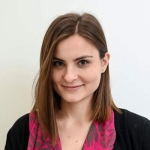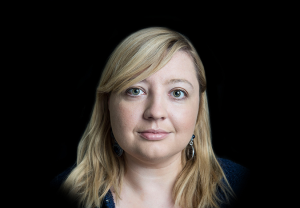
ongoing
Learning for old age and agingIntergenerational education in a relational perspective

principal investigator / project leader
doctoral student at SWPS Unviersity's Doctoral School
Full bio project value: PLN 43,665
funding source: Ministry of Education and Science
discipline: psychology, sociology
research center: USWPS Doctoral School
location: Warsaw
duration: 2022 2023 2024 2025 2026
A doctoral student collaborating with SWPS University's Youth Research Center will study intergenerational relations between youth and older adults to develop a program aimed at strengthening social bonds between these two age groups.
Project funded by the Ministry of Science and Education, no. D00005562.
Project Objectives
The aging of society significantly influences the increase in generational differences, reinforcing the polarization of intergroup differences in the context of age. Thus, the diversity of experiences between youth/young adults and seniors results in growing difficulties when it comes to reconciliation of their perspectives. As a result, generational conflicts can emerge as a type of dispute intensified during periods of rapid social change.
The project addresses social issues around negative attitudes of youth towards seniors, which result in a generalized negative perception of old age. This is related to the weakening of intergenerational bonds within families (for example, due to urbanization and migration), which means that young people in Poland have fewer opportunities to directly interact with older people in personal relationships.
Contact the Principal Investigator at: This email address is being protected from spambots. You need JavaScript enabled to view it..
As part of this project, w will develop an educational program to raise awareness concerning the needs of older people among youth and adults. Furthermore, the project will foster a better understanding of old age and how one can prepare for it. Another goal is to expand intergenerational dialogue beyond the members of one’s family, to indirectly combat ageism (i.e., discrimination based on age).

Romanowska, Magdalena
Principal Investigator
Specialization
sociologist
First and last name
Magdalena Romanowska
Academic degree or title
M.A.
Email
This email address is being protected from spambots. You need JavaScript enabled to view it.
Institute
Youth Research Center
M.A. Magdalena Romanowskadoctoral student at SWPS Unviersity's Doctoral School
Methodology
Data will be collected using a procedure consisting of four components. A mixed-methods study, will allow us to confront youth’s perceptions concerning aging with the experiences of seniors.
To answer our research questions, we will carry out a qualitative multi-methods study, consisting of individual interviews with youth (Component 1, C1), an Intercultural Development Inventory (IDI) with seniors (Component 2, C2), and group interviews (Component 3, C3) with adolescents with the use of an elderly sensation simulator.
During the next stage, we will conduct a participatory study (Component 4, C4a), where we will pair young people with seniors, and the research techniques will include workshops and visual examination of the relationships.
By combining visual materials with the analysis of data from different types of interviews in a mixed-methods approach (Creswell 2013), we will be able to not only prepare a description of the phenomenon, but also to demonstrate how "social processes are objectified in material objects" (MacDougall 2005) in intergenerational relationships. In the spirit of the Participatory Action Research (PAR), our research results will be discussed and analyzed jointly with the participating youth and seniors.
A workshop dedicated to discussing experiences from the visual study in pairs will constitute the final part (C4b) of the research. During the joint analysis exercise, we will also create a photo collage consisting of the photos taken by the participating pairs.
Research team

Pustułka, Paulina
Specialization
sociologist
First and last name
Paulina Pustułka
Academic degree or title
Ph.D. / Associate Professor
Email
This email address is being protected from spambots. You need JavaScript enabled to view it.
Position
profesor uczelni
Role in the Institute
{"funkcja-w-instytucie0":{"Funkcja":"","\u0141\u0105cznik":"","Nazwa w mianowniku":"Institute of Social Sciences"}}
Role in the Research Center
{"funkcja-w-centrum0":{"Funkcja":"Head","\u0141\u0105cznik":"of the","Nazwa w mianowniku":"Youth Research Center"}}
Institute
Institute of Social Sciences
Role in the Faculty
{"funkcja-na-wydziale0":{"Funkcja":"","\u0141\u0105cznik":"","Nazwa w mianowniku":"Faculty of Social Sciences in Warsaw"}}
Role in the Department
{"funkcja-w-katedrze0":{"Funkcja":"","\u0141\u0105cznik":"","Nazwa w mianowniku":"Department of Sociology"}}
Ph.D. / Associate Professor Paulina PustułkaSociologist. Head of the Youth Research Center.
Practical application of results
The collected data will enable the development of practical tools that can be used to inspire younger generations to think about aging, both in their own lives and in a relational perspective. The data will also help to verify the previous methods of learning for aging.
We will develop an educational program, which will be implemented at the Nowolipie Center for Intergenerational Activity in Warsaw. The program will contribute to expanding the scope of the Center's activities by creating conditions for intergenerational reflection on aging and growing old.
Our research will also shed light on areas burdened by the risk of stereotyping and simplification related to the understanding old age by comparing the experiences of grandchildren and grandparents and tracking similarities and differences. Throughout the project, we will identify platforms conducive to supporting intergenerational practices.